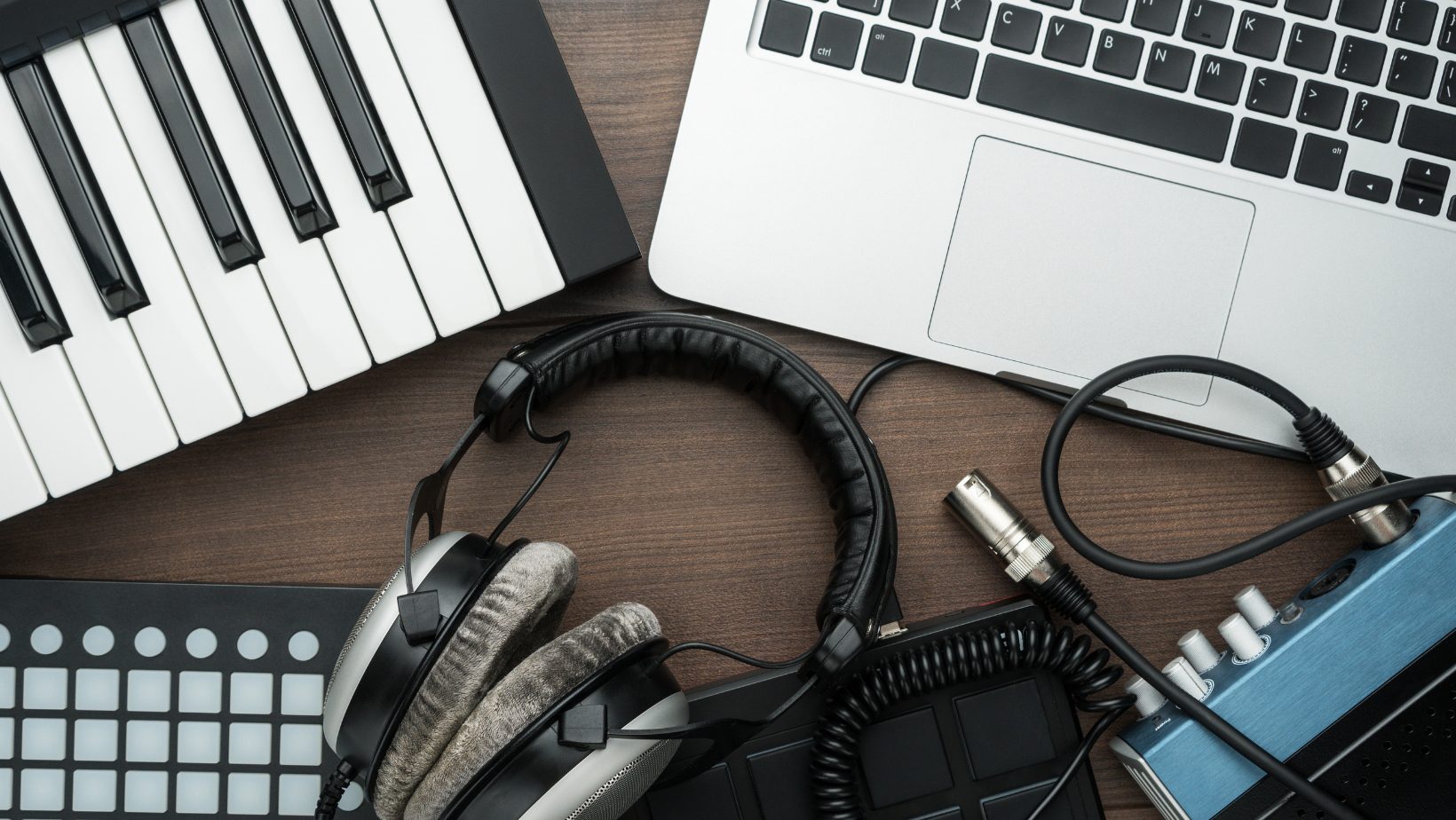
Looking for the perfect laptop to fuel your music-making endeavors? Look no further! In this article, I’ll guide you through the world of laptops that are specifically designed for making music. Whether you’re a professional producer or an aspiring musician, having the right tools at your disposal is crucial for unleashing your creativity and producing high-quality tracks.
When it comes to laptops good for making music, there are a few key factors to consider. First and foremost, processing power is paramount. You’ll want a laptop with a fast and efficient processor that can handle resource-intensive music production software without breaking a sweat. A laptop with at least an Intel Core i5 or AMD Ryzen 5 processor will provide the necessary speed and performance.
In addition to processing power, ample RAM is essential for smooth music production. Aim for a laptop with at least 8GB of RAM, but if you can afford it, go higher. This ensures that you have enough memory to run multiple virtual instruments, plugins, and effects simultaneously without experiencing any lag or slowdowns.
Another important aspect to consider is storage capacity. Music files can take up quite a bit of space, so having ample storage is crucial. Opting for a laptop with solid-state drive (SSD) storage will not only provide faster data transfer speeds but also ensure quick access to your project files.
Choosing the Right Laptop for Music Production
When it comes to making music, having the right tools is essential. And one of the most important tools for any musician or producer is a reliable laptop. So, if you’re in the market for a laptop that’s good for making music, there are a few key factors to consider.
Processor Speed and Performance
One of the first things to look at when choosing a laptop for music production is its processor speed and performance. The processor acts as the brain of your computer, handling all the calculations and tasks necessary to run your music software smoothly.
Ideally, you’ll want a laptop with a fast and powerful processor that can handle demanding digital audio workstations (DAWs) like Ableton Live or Logic Pro X. Look for laptops with quad-core or higher processors, such as Intel Core i5 or i7 models. These processors offer excellent multitasking capabilities, allowing you to run multiple plugins and tracks simultaneously without experiencing lag or latency issues.
RAM and Storage Capacity
Another crucial aspect to consider is the amount of RAM (Random Access Memory) and storage capacity your laptop has. When working with large audio files, virtual instruments, and effects plugins, having enough RAM ensures smooth playback and prevents crashes.
For music production purposes, aim for at least 8GB of RAM but consider going higher if your budget allows it. This will provide sufficient headroom for running resource-intensive plugins and samples.

Portability vs. Power: Finding the Balance
When it comes to making music on a laptop, finding the right balance between portability and power is key. As a musician, I understand the struggle of wanting to create music on-the-go without compromising on performance. In this section, I’ll discuss some important factors to consider when choosing a laptop that is good for making music.
- Processing Power: To effectively run music production software and handle resource-intensive tasks like audio recording, mixing, and virtual instrument plugins, you’ll need a laptop with sufficient processing power. Look for laptops equipped with powerful processors such as Intel Core i7 or AMD Ryzen series processors. These processors offer fast clock speeds and multiple cores, ensuring smooth multitasking during your music production sessions.
- RAM: Having an ample amount of RAM is crucial for running complex digital audio workstations (DAWs) and keeping them running smoothly. Aim for at least 8GB of RAM, but if your budget allows it, consider upgrading to 16GB or more for optimal performance when working with large projects and sample libraries.
- Storage: Music production requires storage space for storing your audio files, samples, and project files. Solid-state drives (SSDs) are highly recommended due to their faster read/write speeds compared to traditional hard disk drives (HDDs). Opting for a laptop with both SSD and HDD storage options can provide you with the best of both worlds – fast access times for frequently used files on the SSD and ample storage capacity on the HDD.
Finding the right laptop for making music involves striking a balance between portability and power. Consider the processing power, RAM, storage options, audio interface compatibility, and overall portability of the laptop before making your decision. By finding the perfect combination of these factors, you’ll be equipped with a reliable tool to unleash your creativity wherever inspiration strikes.



